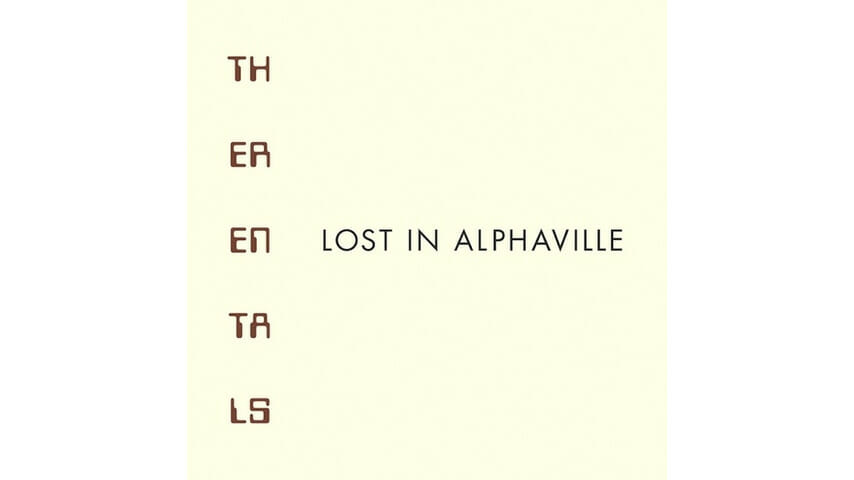
“Moving through the atmosphere / we search the years”
Music blogs have identified Weezer’s first two years in the spotlight (i.e. Blue Album and Pinkerton) as “the Matt Sharp era,” which refers the founding member and original bassist of the seminal indie power-pop outfit, unceremoniously booted out of the band in 1996. Wondering where a lot of that ol’ Weezer magic went? Just listen to any song by The Rentals. Delightfully crusty bass grooves that zoom over surfy rhythms and a zippy synthesizer loop-de-looping melodies like wind-caught kite strings.
Lost In Alphaville retains that fuzzed-out exuberance characteristic to the golden era of indie rock, but little else. Most of its surface springs with major keys, uptempos and earworms, with warm boy-girl harmonies cooing and coiling together over smiling pianos and power chords, but underneath smolders some ponderous rumblings of distortion and caustic ambient noises from that cathartically raked-over synthesizer, helmed by our auteur, Sharp, who’s at his most contemplative, and, at times, abstract, in lyrical fare here. It’s far from the slapped-together shambolic style of ‘90s power-pop; no, this sounds much more arranged, almost like tightened chamber pop if it were clouded by the murk of shoegaze.
Sharp formed the group in 1995, served by a revolving cast of contributors and touring players until 1999, when they disbanded after just two albums. Lost In Alphaville starts in 2012, on a back porch in Nashville, home to Patrick Carney (of The Black Keys), where Sharp stared out into the swelter of a dark Southern summer night after a day of recording and had an epiphany about the future of The Rentals. The time was now.
Time haunts the album’s lyrics, unsure about dwelling too much on the past as much as it’s wary to speculate too much about the future. (Its title could be inspired by a Jean-Luc Godard film famed for juxtaposing nostalgic ‘40s-era film noir into nightmarish post-Robopaclypse renderings.) “Traces Of Tears” bursts out and pounds along with get-up-and-go rhythms and unbridled guitar whips, settling down so that vocals and synthesizers can soar along together to the top of the mix. “High above the city lights / we move tonight / Retracing steps, retracing time / We search for signs / But there are only traces of our tears.” And what a melody. We’re still singing it to ourselves. All about moving forward, very fast, the head swiveling with one eye back toward the past and the other looking ahead, no wonder one would get Lost.
Filling the soundscape seems an explicit goal for Sharp’s production of Alphaville, fully utilizing and intricately layering the harmonization of his own breathy voice with the higher-range of two co-lead vocalists (Jess Wolfe and Holly Laessig of Lucius), just as there’s palpable care for crafting the intertwining routes of riffing between Ryen Slegr’s guitars around Sharp’s own churning bass and surging synthesizer. Oh, and Grammy-winner Patrick Carney’s still killing it on drums underneath it all, nearly buried by all the before-noted ambient buzzing and spacey synth blips, but standing out when on the songs that really go into high gear.